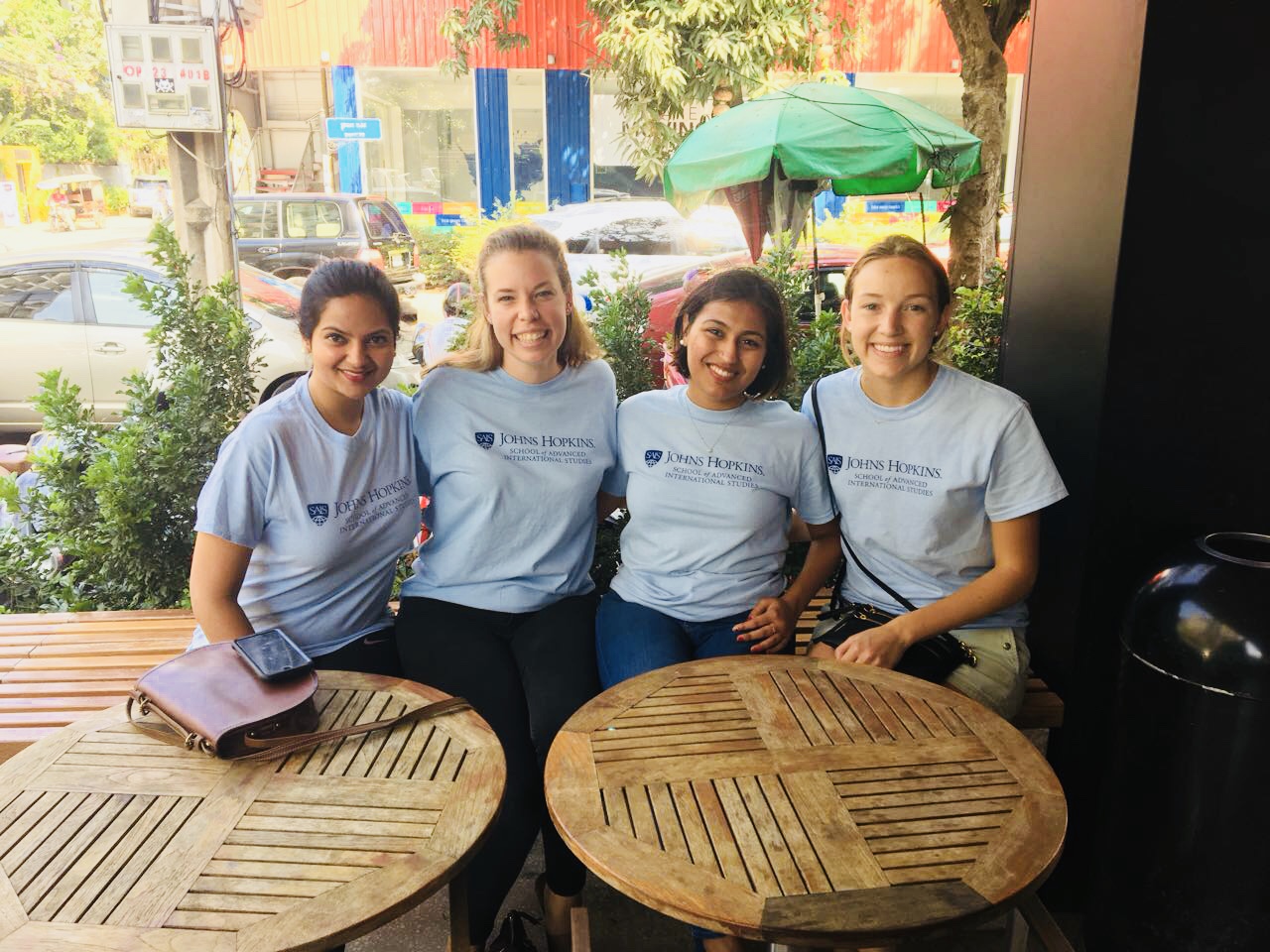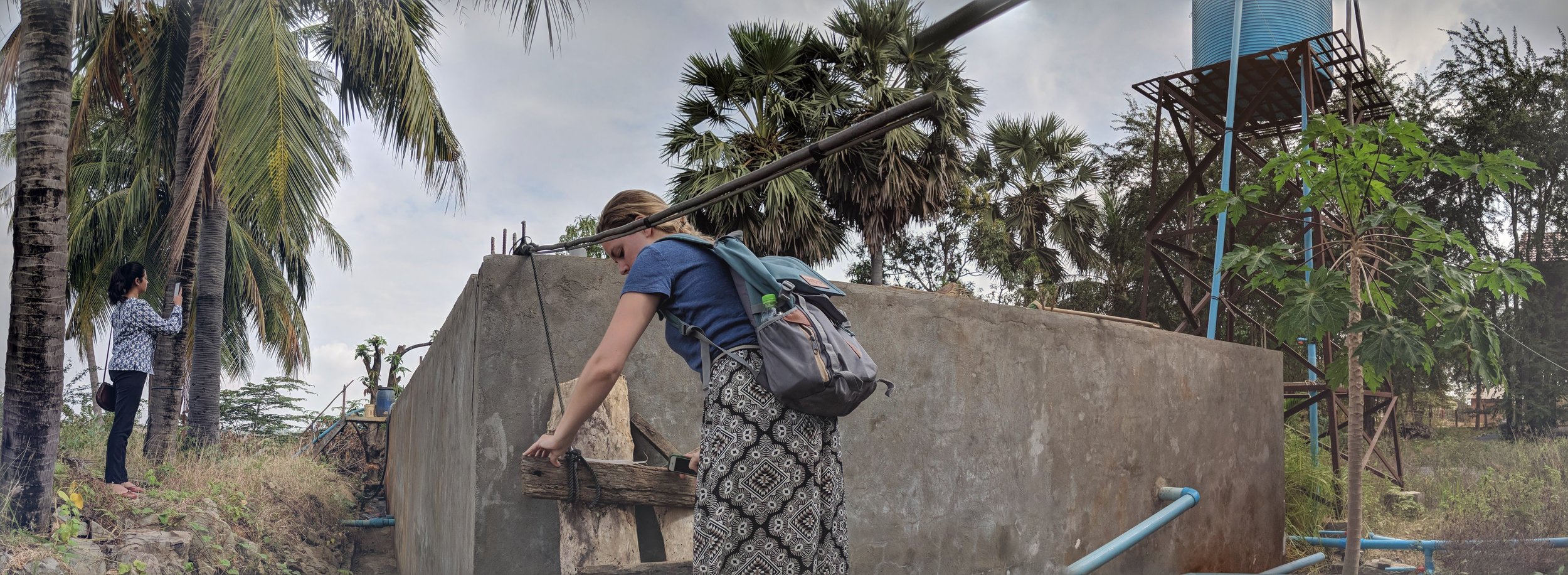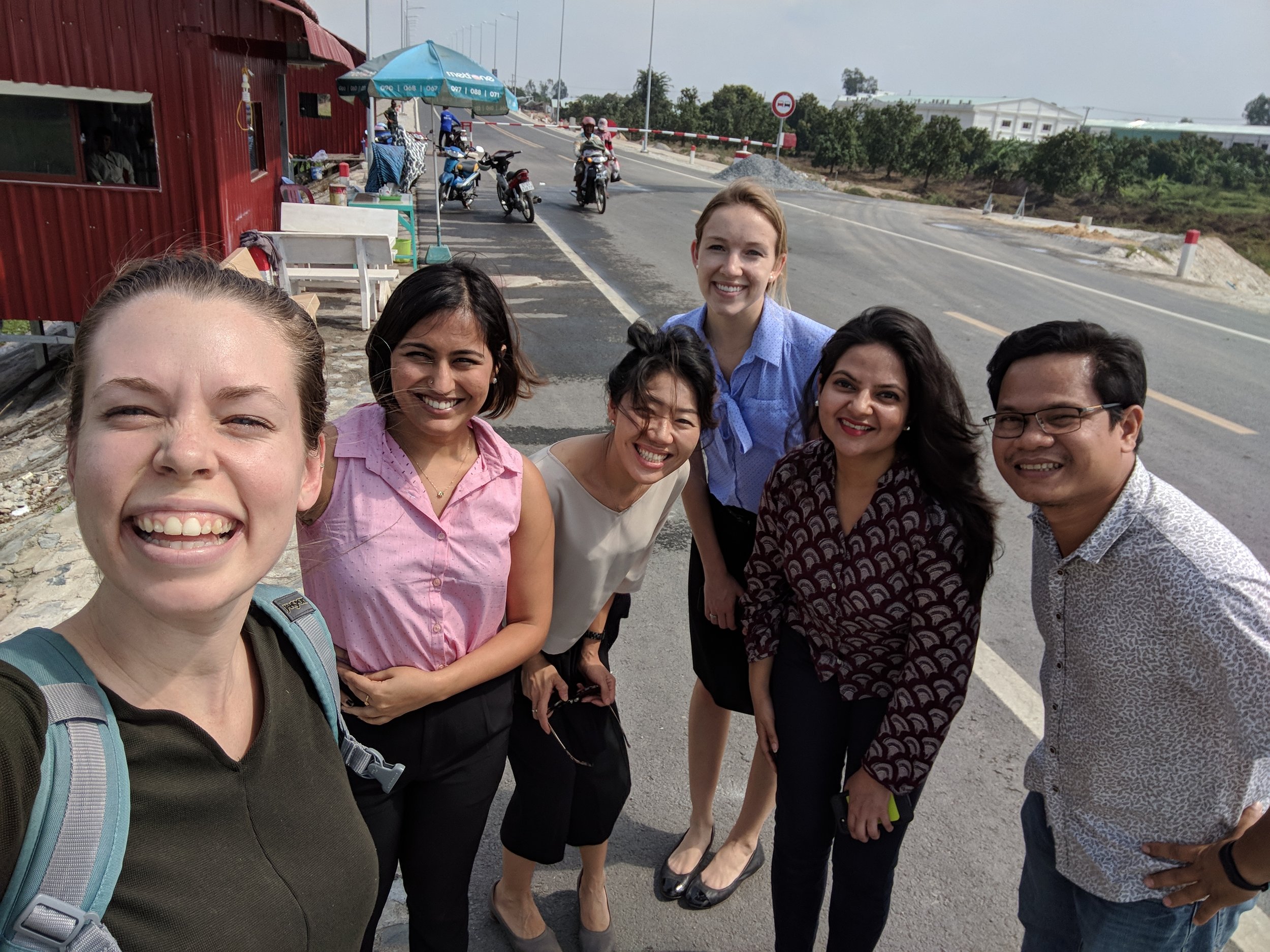BY ANSHU SINGH, CAROLINE AYES, REBECCA HOLE, AND SHAHA ZEHRA
Anshu Singh, Caroline Ayes, Rebecca Hole, and Shaha Zehra are second-year International Development students who recently traveled to Phnom Penh, Cambodia, to design a business model for scaling up access to Water and Sanitation Services (WSS) for financially excluded people through Digital Financial Services (DFS) as part of the IDEV Practicum with Water.org.
The IDEV Practicum allows students to work directly with public, private and non-governmental organizations as a capstone to their graduate studies. The IDEV Practicum Blog is a six-part series that chronicles the travels of IDEV students who take on client projects over winter break.
Five days after arriving in Phnom Penh, we ran out of the small supply of cash that we had brought with us to Cambodia, but we weren’t worried. Based on our research before arriving, we were anticipating a relatively modern, advanced system of payments throughout the country, especially in the national capital. We had read countless reports about the five primary digital payment service providers that are active and present throughout Cambodia, the largest of which serves 1.5 million users. Knowing this and armed with our collective experiences in other developing countries, we assumed that while cash would serve as the primary mode of payments, credit cards and digital payments would also be accepted for goods and services. Not wanting to make a detour at the ATM that morning before our meetings, we decided to grab lunch at a restaurant that accepted credit cards. We figured this would be easy. However, it was only while we went from café to café, with only two dollars between four hungry people, that we realized how wrong we truly were!
The payment ecosystem that we encountered in Cambodia was very different from the one we were expecting. As graduate consultants for Water.org, our task in Cambodia was to determine a feasible and appropriate business model utilizing digital financial services to expand access to water and sanitation in rural areas. According to a report co-funded by USAID, titled Mobile Phones and Internet Use in Cambodia 2016, data collected in September 2016 showed that Cambodia’s phone market is saturated, with over 96% of Cambodians claiming to own their own phone, and more than 99% being reachable through some sort of phone. Based on this information on mobile penetration, and on the presence of a ubiquitous digital payment service provider, we assumed our task of developing a digital financial product for Water.org would be quite straightforward. It wasn’t until we started our field research that we realized how the digital payment providers rely mainly on agents to disburse cash to customers, rather than transferring money and enabling payments through purely digital platforms.
Many potential clients in rural areas are still using feature phones, and many households have only one phone shared between members. Feature phones do not support the Khmer script, and many people in Cambodia living in rural areas are unfamiliar with the other languages offered on these models. These barriers are also why many people living in rural areas of Cambodia do not use the digital payment platform themselves and prefer agents to make transactions for them. Smartphones, while supportive of the Khmer script, are only now beginning to penetrate the rural market and are often only used to access Facebook, which has an incredibly high uptake in Cambodia. These firsthand insights threw a wrench in the business models we had been researching through secondary sources during the fall semester, and we had to go back to the drawing board with our new knowledge and insights.
Finishing up our two-week stint in Phnom Penh, we realized the value of field research for development practitioners. It would have been impossible to develop a model that would be truly relevant to the cultural context and the needs of those we wished to serve had we relied solely on desk research conducted thousands of miles away from where the project would be implemented. Armed with fresh insights from the field, and taking into account feedback from the local systems, the team is now working on an innovative WASH financing model that addresses the most immediate needs for Water.org’s targeted beneficiaries in Cambodia, while also taking into account the present limitations of the financial and telecom infrastructure in the country. This new model, while aiming to be immediately relevant, has a blueprint designed to be forward thinking and iteratively adaptive to be able to leverage new technology that we expect will disrupt the digital financial services space in Cambodia in the near future, but as of now are too nascent to incorporate in the model.
To read about what work the other IDEV Practicum teams did this year, visit this page.
PHOTO CREDIT (COVER): "Ta Phrom" by Lee LeFever, from Flickr Creative Commons licensed under CC BY-NC 2.0.
PHOTO CREDIT (GALLERY): Anshu Singh, Caroline Ayes, Rebecca Hole, and Shaha Zehra






